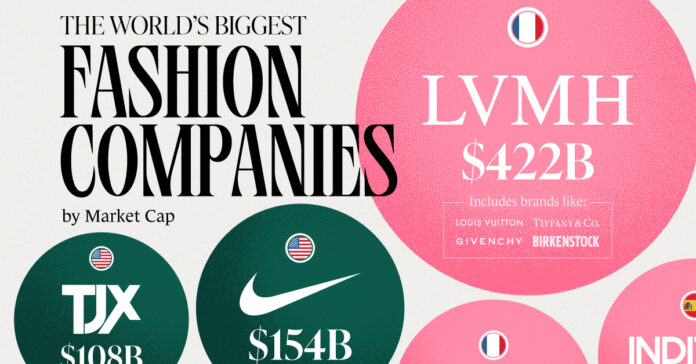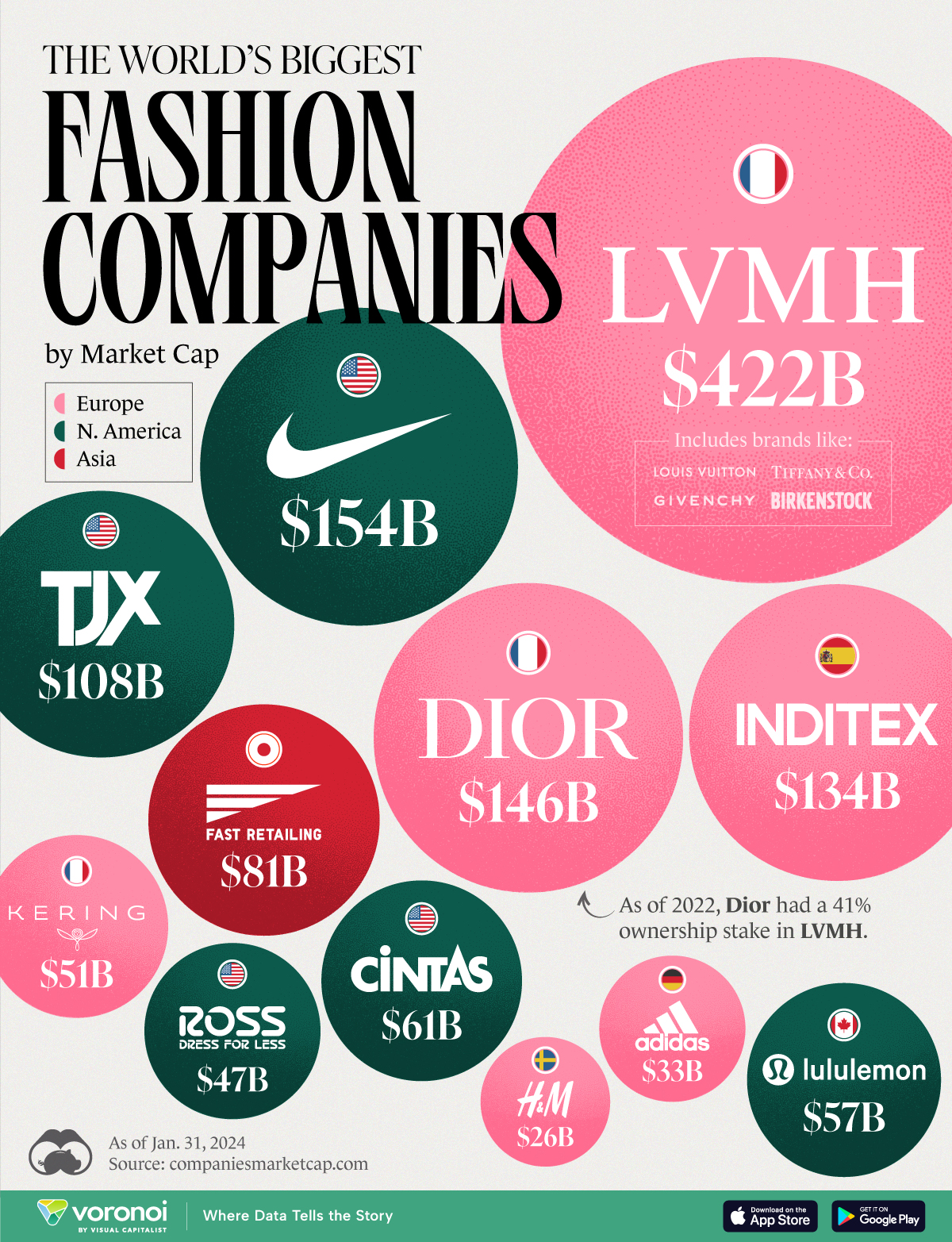The World’s Biggest Fashion Companies by Market Cap
By Marcus Lu, Visual Capitalist
Article/Editing: Bruno Venditti
Graphics/Design: Miranda Smith
The World’s Biggest Fashion Companies by Market Cap
This was originally posted on our Voronoi app. Download the app for free on iOS or Android and discover incredible data-driven charts from a variety of trusted sources.
Fashion is one of the largest industries globally, accounting for 2% of the global gross domestic product (GDP).
In this graphic, we use data from CompaniesMarketCap to showcase the world’s 12 largest publicly traded fashion companies, ranked by market capitalization as of Jan. 31, 2024.
LVMH Reigns Supreme
European countries dominate the list of the biggest fashion companies, with six in total. The U.S. boasts four companies, while Japan and Canada each have one.
LVMH Moët Hennessy Louis Vuitton (LVMH) is the industry’s biggest player by a wide margin. The company boasts an extensive portfolio of luxury brands spanning fashion, cosmetics, and liquor, including Marc Jacobs, Givenchy, Fendi, and Dior, the latter of which holds a 41% ownership stake in the global luxury goods company.

As a result of the success of the company, in 2024, LVMH chairman Bernard Arnault overtook Elon Musk as the richest person in the world.
In second place, Nike generated 68% of its revenue in 2023 from footwear. One of the company’s most popular brands, the Jordan Brand, generates around $5 billion in revenue per year.
The list also includes less-known names like Inditex, a corporate entity that owns Zara, as well as several other brands, and Fast Retailing, a Japanese holding company that owns Uniqlo, Theory, and Helmut Lang.
According to McKinsey & Company, the fashion industry is expected to experience modest growth of 2% to 4% in 2024, compared to 5% to 7% in 2023, attributed to subdued economic growth and weakened consumer confidence. The luxury segment is projected to contribute the largest share of economic profit.




